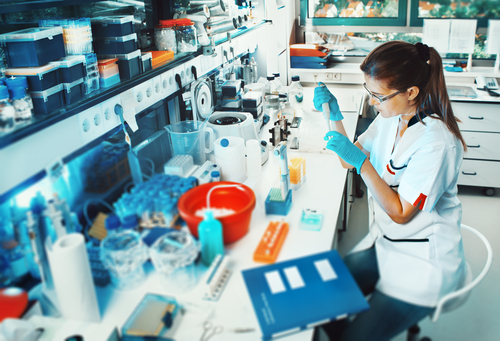OptiKira To Develop Cell-Protective Therapeutics For Unfolded Protein Response

 BioMotiv is a drug advancement accelerator associated with The Harrington Project, the University of California San Francisco (UCSF), and University of Washington, Seattle working on breakthrough discoveries and new therapeutics that have the potential to address unmet clinical needs. Recently, the accelerator announced the creation of a platform company, OptiKira, that will advance small molecule therapeutics to prevent cell death in some pathologies derived from unfolded or misfiled proteins, such as amyotrophic lateral sclerosis (ALS).
BioMotiv is a drug advancement accelerator associated with The Harrington Project, the University of California San Francisco (UCSF), and University of Washington, Seattle working on breakthrough discoveries and new therapeutics that have the potential to address unmet clinical needs. Recently, the accelerator announced the creation of a platform company, OptiKira, that will advance small molecule therapeutics to prevent cell death in some pathologies derived from unfolded or misfiled proteins, such as amyotrophic lateral sclerosis (ALS).
OptiKira is supported by intellectual property licensed from the UCSF and the University of Washington. The research project was initially developed at those two institutions by Scott Oakes, a UCSF Professor of Pathology, Feroz Papa and Bradley Backes, also of UCSF in the school of Medicine, and Dustin Maly, a Chemistry Professor at University of Washington. Oakes and Papa are both members of the Harrington Scholar-Innovators, and through this annual grant competition several discoveries are advanced towards pre-clinical proof-of-principle studies.
The Founders discovered that Unfolded Protein Response (UPR) has a central housekeeping role in cell metabolism — a mechanism that cells use to deal with proteins that are functioning abnormally. However, when full, the “terminal UPR” results in the assemblage of too many unfolded proteins and, consequently, cellular death. Scientists synthesized IRE1a inhibitors to prevent the activation of the UPR terminal without compromising the housekeeping role of the enzyme. They have also managed to demonstrate that the inhibitors of IRE1a, the kinase-inhibiting RNase attenuators (KIRAs), protect cells from degeneration, as observed in pre-clinical models of retinitis pigments and diabetes.
“Our collaborative efforts on targeting premature cell death have produced this unique opportunity to address an unmet clinical need,” commented Dr. Papa in a press release.
“We have been very impressed by the work done by the scientific founders and are excited to partner with them in forming Optikira. We are enthusiastic about the ability for this technology platform to impact a variety of diseases,” said Baiju R. Shah, who isBioMotiv’s Chief Executive Officer.
In other developments in ALS, a research team from the University of Wisconsin-Madison Waisman Center led by Su Chun Zhang, established a simple model in mice to investigate the role of human astrocytes in neurologic diseases such as Amyotrophic Lateral Sclerosis (ALS), Rett Syndrome and Huntington’s disease. For the first time, human astrocyte progenitors were implanted into adult mice’s cervical spinal cords. Previous studies have transplanted those progenitors into newborn mice, however, this study is more relevant, as many diseases affecting astrocytes occur in human adults.






